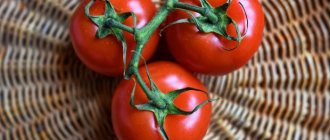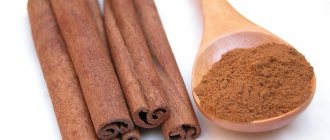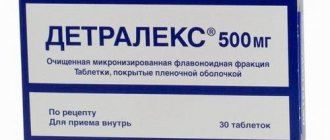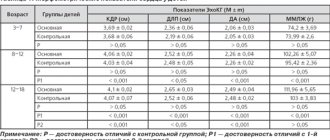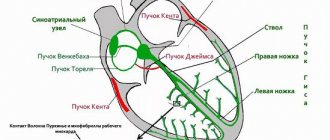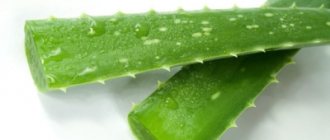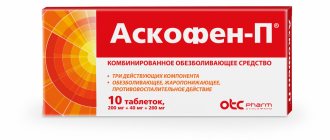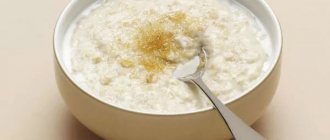Cinnamon is a beneficial spice that has been used for medicinal purposes for thousands of years. And to this day it is present in almost every home in different parts of the world.
Interestingly, scientists consider cinnamon to be the best of 26 other spices and herbs due to the presence of high levels of antioxidants. It has a number of beneficial properties, as well as antibacterial, antifungal and antidiabetic effects.
In fact, cinnamon is made from the bark of the Cinnamomum verum (or Cinnamomum zeylanicum) tree. The bark contains several compounds, including cinnamaldehyde, cinnamic acid and cinnamate. They are what make the spice so healthy.
What are the benefits of cinnamon and how can you include it in your diet? Let's talk about this in more detail.
Benefit for health
As one of the most ancient spices in the world, cinnamon has long been used to treat ailments and is an integral part of holistic and traditional medicine in many nations. Cinnamon has the following beneficial properties:
Rich in antioxidants
Cinnamon contains a high concentration of antioxidants that protect the body from the harmful effects of free radicals and slow down the aging process. Scientists have discovered at least 41 different protective compounds in this spice.
On the ORAC scale, which measures the concentration of antioxidants in various foods, cinnamon ranks seventh among all foods, spices and herbs. It has more antioxidants than thyme, garlic and rosemary.
The beneficial properties of cinnamon are associated with the content of certain types of antioxidants, including polyphenols, phenolic acids and flavonoids. These compounds help manage oxidative stress and prevent the development of chronic diseases.
Various antioxidants present in the spice help neutralize free radicals and protect against the onset of oxidative stress. They also help limit the buildup of nitric oxide in the blood and prevent lipid peroxidation. Both processes are risk factors for brain disorders, cancer, heart disease and other chronic conditions.
Relieves inflammation
The antioxidants in cinnamon help fight inflammation, reducing the risk of heart disease, cancer, cognitive distortion and other ailments. Scientists have identified a number of different types of flavonoids in the spice that effectively combat dangerous inflammation that may be present in the body.
Since cinnamon can reduce swelling and prevent inflammation, it can also be helpful for pain. In fact, research shows that it helps relieve muscle and menstrual pain, reduce the severity of allergic reactions, and ease symptoms associated with the aging process.
Protects the heart
Research suggests that one of the main properties of cinnamon is its ability to improve heart health. Thus, it affects common risk factors for heart disease such as high cholesterol, high triglyceride levels and high blood pressure. Thus, cinnamon helps keep the heart healthy and strong.
Research suggests that the spice is an effective coagulant, increasing blood clotting. Cinnamon improves blood circulation and speeds up tissue repair, which may be especially important in preventing heart attacks and strokes.
Normalizes blood sugar levels
Cinnamon is known for its anti-diabetic properties, for this reason it is often included in the diet for diabetes. Research has shown that it can lower blood sugar levels and increase sensitivity to the hormone insulin, which helps transport sugar through the bloodstream into tissues and maintain normal levels.
Research suggests that cinnamon for diabetes may be able to block the activity of certain digestive enzymes, slowing the absorption of sugar into the blood after eating a carbohydrate-rich meal. For this reason, scientists believe that supplementing with cinnamon extract may have a positive effect on blood sugar levels in patients with type 2 diabetes.
Supports brain function
Since cinnamon is rich in antioxidants, this spice may improve brain function and protect it from the development of neurological disorders such as Parkinson's or Alzheimer's disease.
Although there are no studies in human volunteers, in vitro experiments have shown that cinnamon can limit the accumulation of a specific protein in the brain, thereby reducing the risk of developing Alzheimer's disease. In animal studies, the spice has been shown to also protect neurons from oxidative stress, reducing the risk of inflammation and cell damage.
Helps reduce the risk of cancer
Thanks to its antioxidant properties, cinnamon may protect against DNA damage, cellular mutations, and the formation of cancerous tumors. Research has shown that this is due to the compound cinnamaldehyde present in cinnamon, which slows the growth of tumors and protects DNA while killing cancer cells.
The spice is especially effective against colon cancer. Scientists believe it improves colon health, reducing the risk of cancer.
Nowadays, scientists are especially actively studying cinnamon as a product that can be used as part of natural anti-cancer therapy. Supplementing with the spice may be effective in fighting cancer due to its high antioxidant content.
Fights infections and viruses
Cinnamon protects the body from diseases in several ways. It has natural antibacterial, antibiotic, antifungal and antiviral properties. And its essential oils contain powerful compounds that strengthen the immune system.
Thus, cinnamon is used in many cultures as a natural remedy for infections and viruses. Cinnamon oil, in particular, can protect against bacterial infections that cause diseases such as colds, pneumonia and sore throat.
Used for oral hygiene
Research suggests that cinnamon may protect the mouth from certain types of bacteria that can cause bad breath, tooth decay and infections. Cinnamon essential oils have powerful antibacterial properties and can be used to fight bacteria in the mouth, acting as a sort of “toothbrush.”
Like peppermint, cinnamon contains aromatic substances that can improve bad breath. By getting rid of bacteria, cinnamon improves the condition of the oral cavity without harming the body. For this reason, cinnamon is traditionally used as a tooth powder and a natural remedy for treating toothache, mouth and dental diseases.
Beneficial features
Prevents the development of fungus
Research suggests that the antifungal properties of cinnamon may be effective in preventing and treating fungal infections in the digestive tract. The spice can reduce the number of dangerous yeasts that can cause the development of intestinal and autoimmune disorders.
Another study examining the benefits of cinnamon found that it helps control blood sugar levels. Diets high in refined carbohydrates increase the amount of sugar in the gastrointestinal tract and may be associated with an increased risk of developing fungus.
Improves skin condition
The antibiotic and antimicrobial properties of cinnamon allow the spice to be used for skin problems. Cinnamon may protect against irritation, rashes, allergic reactions and infection. One study found that applying cinnamon essential oil directly to the skin can reduce inflammation, swelling, pain, and redness.
Cinnamon combined with honey, another antimicrobial product, improves the appearance of skin and fights acne, rosacea and skin allergies.
Relieves allergy symptoms
In animal studies, numerous compounds in cinnamon have been shown to help calm allergies and relieve symptoms by fighting inflammation and histamine reactions.
Is a natural sweetener
Cinnamon has a sweet taste, which means that by adding it to the recipe, you will reduce the amount of sugar needed and reduce the glycemic load of the dish. In addition, it has an antidiabetic effect, which means it slows down the absorption of sugar and normalizes its level in the blood. This is an excellent sugar substitute for people who are insulin sensitive.
Cinnamon has no added sugar, minimal calories, and is loaded with nutrients that make it very healthy.
Try adding cinnamon to coffee, tea, baked goods, yogurt or porridge, replacing sugar with it. This way you will reduce the amount of sugar consumed, and therefore calories, which will promote weight loss, prevent fungus, diabetes and fatigue.
Acts as a natural preservative
Few people know, but cinnamon can be used to extend the shelf life of foods. Scientists emphasize that the antibacterial and antioxidant properties of the spice allow it to be used to preserve food without the use of artificial substances.
A recent study found that fruit pectin coated with cinnamon leaf extract stays fresh longer. The spice also has anti-tyrosinase activity, which prevents discoloration of fruits and vegetables due to oxidation and spoilage.
Kinds
The cinnamon tree grows in many parts of the world, and there are about 250 varieties of this spice.
However, today the most popular are Ceylon cinnamon, which is sometimes called true cinnamon, and cassia, which is more affordable and popular.
In fact, Ceylon cinnamon and cassia come from different types of trees. Ceylon cinnamon trees are native to the regions of Sri Lanka and Thailand. It is quite expensive and cannot always be found in stores.
On the other hand, Cassia, or Chinese cinnamon, grows in China. This spice is cheaper and more accessible.
At the moment, cassia has been studied by scientists in much more detail. However, they believe that Ceylon cinnamon may be healthier than cassia.
Ceylon cinnamon contains less of a compound called coumarin, which can be harmful to the liver in large quantities. For this reason, Ceylon cinnamon is most often used to produce extracts containing high concentrations of the spice.
In terms of flavor, Ceylon spice is lighter and has citrus notes, while cassia is richer and spicier. However, it is worth noting that both types can be used in dishes.
Cinnamaldehyde gives both types of cinnamon their spicy taste and smell. Both cassia and Ceylon cinnamon are beneficial, but the powder of the latter is believed to be more effective.
In addition to those already presented, there are other types of cinnamon. For example:
- Indonesian cinnamon
- Vietnamese cinnamon
- Indian cinnamon
- Malabar cinnamon
Treatment of hypertension
In order to get the most beneficial effect from consuming spices, you need to choose the right product, because different varieties have certain differences, indicated in the table and video in this article.
Table. Main types of cinnamon:
| Product name and photo | Features of the workpiece | Characteristic |
| The tubes are hand-rolled from the inner layer of tree bark and dried. The packaging is labeled “Indonesian cinnamon”; the country of origin is Sri Lanka. | Color from golden to brown. Low coumarin content. The structure is crumbly. It smells strong. |
| It is made from the entire bark of any shoot, which makes it coarser. Typically produced in China. | There is quite a lot of Coumarin, the concentration of useful components is lower, and the price is cheaper. The color is closer to red. |
You can distinguish spices using iodine. To do this, simply apply an alcohol solution to the surface of the spice.
If the bark turns dark blue, this means that it contains a sufficient amount of starch, indicating the Cassia variety.
Cinnamon with low-fat kefir is a good remedy for hypertension
Knowing which type is healthier, you can start using cinnamon for medicinal purposes.
Below are simple and effective recipes that are easy to prepare yourself:
- Kefir with spice. Stir a pinch of powder into a low-fat product and leave for half an hour to allow the cinnamon to swell. Adding grated ginger and honey will enhance not only the taste of the cocktail, but also its medicinal value. This recipe is a good replacement for a snack before bed or even dinner if a person is trying to lose weight. You can also drink this kefir for breakfast.
- When brewing tea (preferably green), add a straw of cinnamon and orange zest, wait until it cools, add a slice of lemon and sweeten with honey. It is recommended to drink this tea with natural berry jam or snack on fresh fruit.
- Mix equal parts of honey and curdled milk, add cinnamon powder. For each glass of the mixture you will need one teaspoon of powder. Mix everything well and drink 200-250 ml half an hour before meals, twice a day. Your blood pressure should return to normal within two weeks.
- Mix cinnamon and honey in a ratio of 1:2 or 1:3 and eat a teaspoon three times a day after meals. Can be used as a tea snack or a sweet spread for buns. The duration of one course is from ten days to two weeks. Then it is advisable to take the same break or take it subject to another increase in pressure.
- Dissolve a tablespoon of honey in a glass of water and add a teaspoon of powder. Mix everything and drink periodically as desired or when blood pressure increases.
It is useful to consume cinnamon with natural honey for hypertension
As a spice, cinnamon powder is recommended to be added to various products, for example, cereals, sweet fruit salads, baked goods, drinks and other products at your own discretion. It is important to be careful not to overdo it though.
Nutritional properties
The benefits of cinnamon lie in even the smallest pinch. Half a teaspoon of spice per day has a positive effect on blood sugar levels, digestion and immunity.
In higher doses, cinnamon improves heart health and reduces the risk of diabetes, cancer and neurodegenerative diseases.
Cinnamon can provide the body with a wide range of important nutrients, vitamins and minerals, particularly fiber and manganese.
One tablespoon (about 8 grams) of ground cinnamon contains approximately:
- 19 calories
- 6.2 g carbohydrates
- 0.3 g protein
- 0.2 g fat
- 4.1 g dietary fiber
- 1.4 mg manganese (68% of RDA)
- 77.7 mg calcium (8% of RDA)
- 0.6 mg iron (4% of RDA)
- 2.4 mcg vitamin K (3% of RDA)
Is the avocado seed the new superfood?
In addition to the nutrients presented above, this spice contains small amounts of vitamin E, niacin, vitamin B6, magnesium, potassium, zinc and copper.
Rules of application
The use of any folk remedies in the treatment of such a dangerous disease as hypertension should be discussed with your doctor. In the absence of contraindications, it is recommended to take the medications described above in courses lasting 2–3 weeks. Then, in order to avoid the body becoming accustomed to the effects of the drugs, you should take a break for the same period.
However, one should not assume that hypertension can be cured only with folk remedies. To normalize the condition, an integrated approach is required. The patient should adhere to a strict diet and exclude salty and fatty foods from the diet. It is recommended to spend more time in the fresh air, give up bad habits and lead a physically active lifestyle.
How to use
Scientists have concluded that cinnamon is beneficial, both in its original bark form and in the form of essential oils, ground powder or extract, which releases the spice's specific phenolic compounds, flavonoids and antioxidants. These substances make cinnamon one of the most beneficial spices on Earth, giving it powerful antioxidant, anti-inflammatory, antidiabetic, antimicrobial, immune-strengthening and anticancer properties.
Cassia can be found on the shelves of almost any supermarket. However, organic Ceylon cinnamon in powder or essential oil form will be much more effective. It is sold in pharmacies and health food stores.
Please read the label carefully before purchasing. Keep in mind that if the variety of cinnamon is not indicated on it, then most likely it is cassia. It is cheaper and much more common in stores.
You can also purchase cinnamon sticks and grind them yourself using a grater. Whole sticks are often added to drinks, such as mulled wine or tea, to impart a distinctive aroma.
To determine the type of plant when purchasing sticks, pay attention to their texture. Ceylon spice tends to be thinner and more fragile compared to cassia.
Ground cinnamon is commonly added to dishes such as oatmeal, yogurt, or baked goods. It adds depth and warmth to the taste.
In addition to drinks and foods, cinnamon is often used as a dietary supplement. Thus, in pharmacies you can find cinnamon in the form of tablets, capsules and essential oils, where the concentration of substances is much higher.
Contraindications
In addition to individual intolerance to the components, the drugs described in the article are not recommended to be taken:
- children under 3 years old;
- pregnant and lactating women;
- persons with liver and kidney failure;
- women during the menstrual cycle;
- patients with gastric and duodenal ulcers during exacerbation;
- if there is a body temperature above 37°C.
It is also not recommended to take cinnamon for people with diseases of the nervous system and those suffering from epilepsy. If any unpleasant symptoms or discomfort appear, you should stop using the products and consult a doctor for advice.
